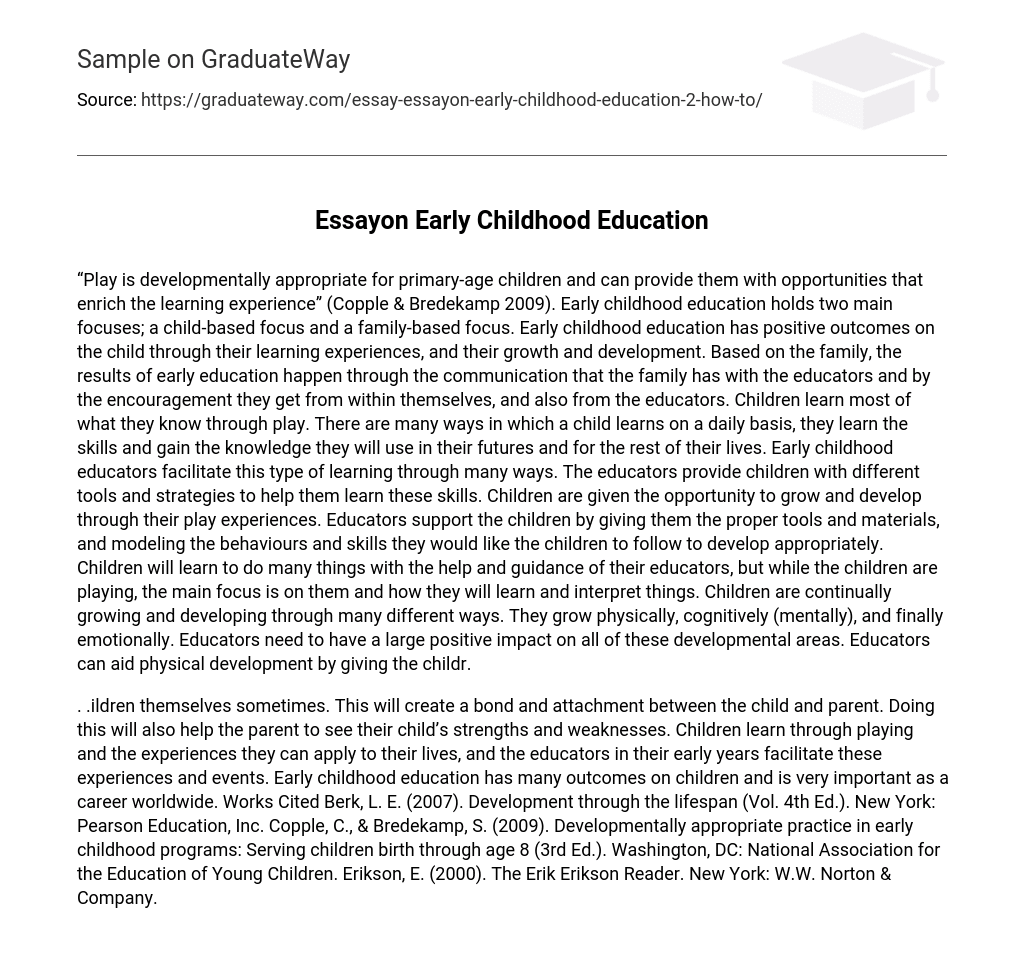Play is crucial for primary-age children, as it enhances their learning experience and is deemed appropriate by Copple & Bredekamp (2009). Early childhood education focuses on both the child and the family, resulting in positive outcomes for growth, development, and learning. The family’s involvement is essential through communication with educators and self-encouragement.
Play serves as the primary means of learning for children, allowing them to acquire skills and knowledge that will benefit them throughout their lives. Educators support this learning process by providing tools, materials, and modeling appropriate behaviors and skills. However, during playtime, the main focus remains on how children themselves learn and interpret things.
Growth and development occur in various dimensions such as physical, cognitive, and emotional aspects. Educators have a significant role in fostering progress across these developmental facets. An example of supporting physical development would be providing suitable opportunities for children.
Engaging children in their own education can foster a bond and attachment between parents and their child. This approach allows parents to observe their child’s strengths and weaknesses, while also promoting learning through play and real-life experiences. Early childhood education has a significant impact on children and is an essential profession worldwide.
Works Cited: Berk, L. E. (2007). Development through the lifespan (Vol. 4th Ed.). New York: Pearson Education, Inc. Copple, C., & Bredekamp, S. (2009). Developmentally appropriate practice in early childhood programs: Serving children birth through age 8 (3rd Ed.). Washington, DC: National Association for the Education of Young Children. Erikson, E. (2000). The Erik Erikson Reader. New York: W.W. Norton & Company.





